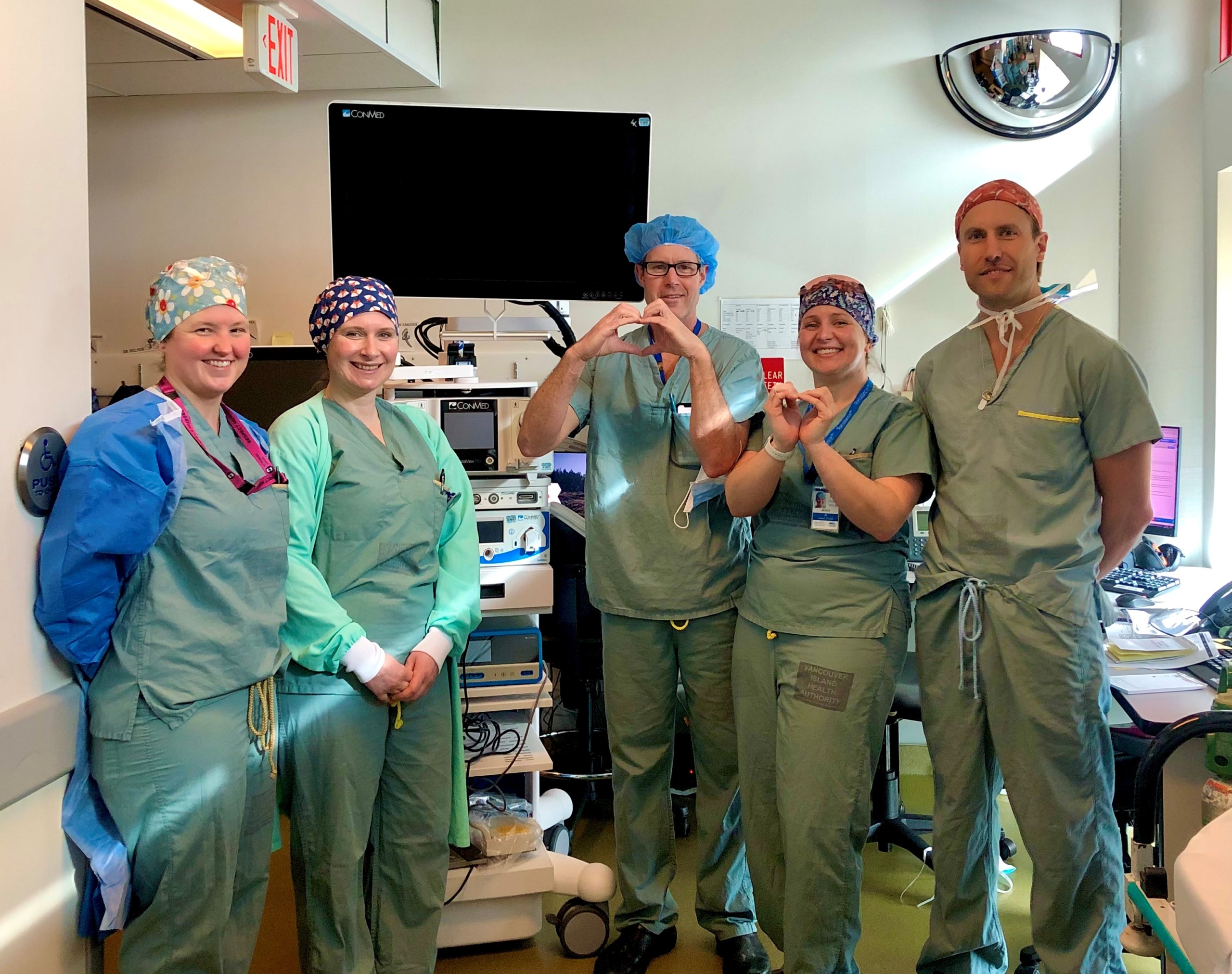When caregivers at Cowichan District Hospital noticed two-day-old Madelyn was having seizure activity, she was transferred to the NICU at Victoria General Hospital (VGH), Vancouver Island’s referral centre for maternity and pediatric care. The family remained there for 10 days while tests were performed and Madelyn was treated with anti-seizure medication. Eventually, her parents Chelsea and Matthew learned their daughter had suffered a perinatal stroke, likely around the time of birth.
The family was discharged and returned home to the Cowichan Valley. Then, Chelsea noticed a red mark on Madelyn’s knee, resembling a bug bite.
Matthew and Chelsea monitored the knee closely. A few days later, the knee swelled significantly, so much that it prompted the couple to call their midwife, who expressed concerns of infection and advised them to drive back to VGH.
The family arrived at VGH on a Friday afternoon, where care teams conducted bloodwork, an ultrasound, and withdrew fluid from Madelyn’s knee for a culture. The culture would take 48 hours to confirm results. In the meantime, Madelyn was started on a variety of antibiotics to address concerning bloodwork results.
The next morning, Dr. Peter Dryden, the Division Head of Orthopedic Surgery, examined Madelyn and informed Matthew and Chelsea that she may require surgery.
Once the culture results were available, Dr. Dryden shared the news that Matthew and Chelsea’s three-week-old daughter had a staph infection, and her knee had turned septic—the body’s extreme and potentially life-threatening response to an infection.
“Dr. Dryden was on it—we felt like we were in good hands with him,” says Chelsea.
“It felt like a rollercoaster, especially since we had just spent 10 days in the NICU,” says Matthew. “We were in survival mode.”
Dr. Dryden performed surgery on their daughter with the help of an arthroscope—a thin tube with a camera and light attached—to locate the infected area and wash fluid through it. The scope allows for such procedures to be minimally-invasive, which, in many cases, means smaller incisions, quicker recovery times, and less chance of infection.
Most importantly, the arthroscope offered Dr. Dryden and his team essential visibility while operating on such a small patient.
The surgery was successful, and Madelyn spent the next six weeks recovering and being treated with antibiotics at VGH. Today, she is doing well, and is meeting all milestones expected of a six-month-old baby. Now that the couple have settled into everyday life with Madelyn, Matthew and Chelsea are optimistic about their family’s future.
“We’re about to start swimming lessons with her, which is going to be great,” says Matthew. “We can’t wait—she’s getting more and more mobile everyday, and we’re so excited for the road ahead.”
The couple hope Madelyn’s story will help highlight the need to support our Vancouver Island hospitals.
“Madelyn’s gone through a lot in her short life, demonstrating immense strength and resilience. Two serious life-threatening conditions within her first month—we never could have imagined this,” says Matthew. “Our population is growing, and with that growth comes the need for more resources.”
“It’s about giving doctors the ability to do the best they can,” adds Chelsea. “Better equipment provides better results.”
Hear directly from Dr. Peter Dryden:
“In the case of Matthew and Chelsea’s three-week-old daughter, arthroscopy allowed us to flush fluid through her knee to get rid of her infection. For this little one, I was easily able to put six litres of fluid through her knee in a very short time. The surgery took what was a really swollen and infected knee and turned it into a sore knee that would continue to improve—and eventually heal.”
—Dr. Peter Dryden, Division Head, Orthopedic Surgery, Island Health





